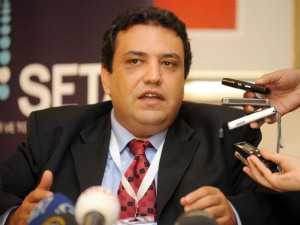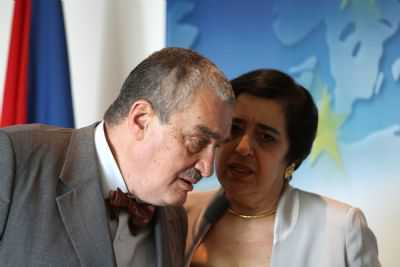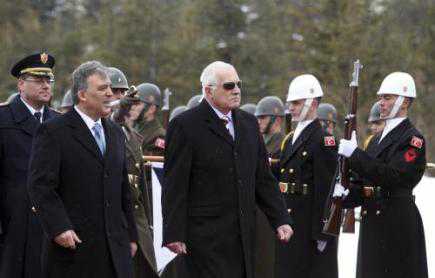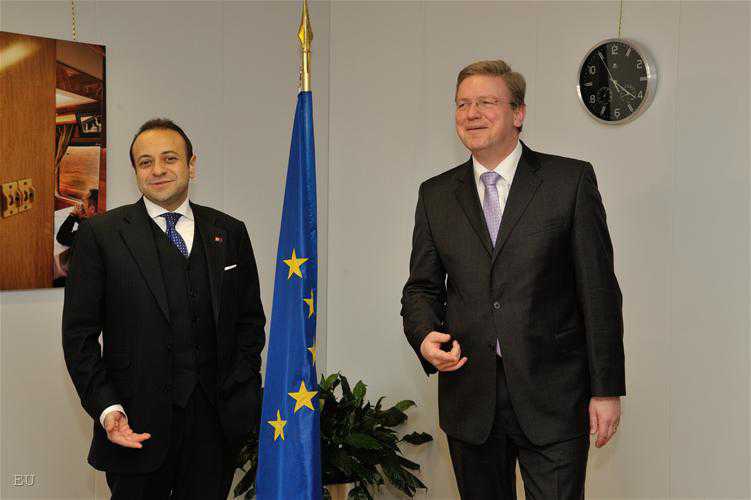As Francois Hollande drives through Paris to his inauguration today, he should add an item to his daunting list of priorities as president of France: End his country’s block on Turkey’s talks to join the European Union, and do it soon.
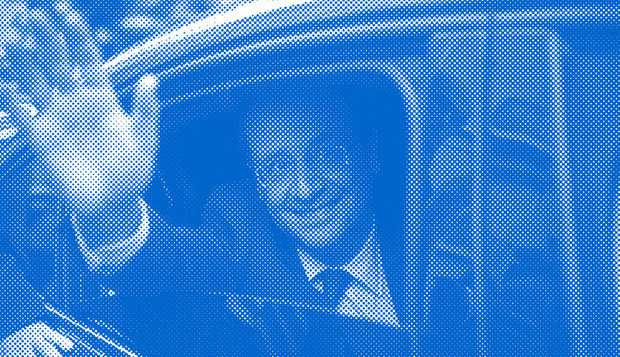
Photograph by Balint Porneczi/Bloomberg
That may seem eccentric in light of everything Hollande already faces, what with the euro area’s economic meltdown. But it isn’t. The European project as a whole is faltering under the political strain of the crisis. EU leaders need to show direction and create momentum for the bloc, in areas where they can reaffirm its purpose and values, even as the economy sputters.
Turkey’s a good place to start. Unblocking its membership process would end the widespread impression that the EU discriminates against Muslims, at a time when xenophobia, anti- immigrant feelings and isolationism are rising within the mainly Christian nations of Europe. Allowing talks to continue is a very different issue from Turkey, population 73 million, actually joining the EU. That remains a distant prospect.
In 2004, the EU agreed to give Turkey the chance to join the bloc, if it could show it had adopted the required 100,000- plus pages of EU legislation and other conditions of membership. Since then, 19 of the 35 negotiating chapters that are involved in this process have been blocked. Turkey is the only country in the EU’s history to have its membership bid frozen in this way.
Unilateral Stop
There are several causes for this, including a dispute over Cyprus, an EU member that Turkey doesn’t recognize. In 2007, French President Nicolas Sarkozy unilaterally blocked five chapters that relate to Turkey’s ultimate membership, and so long as that decision remains, Turkey has little cause to compromise on Cyprus. Sarkozy made his reasoning clear: namely, that Turkey wasn’t part of Europe geographically and doesn’t belong in it.
Removing the French veto would inject new life not only into the European project, but also into its economic fortunes. Turkey grew by 8.5 percent last year, and has a population with a median age of about 28, compared with 45 in Germany. Slow growing and demographically challenged as it is, the EU needs the fresh blood and energy that Turkey has to offer. The two economies are already closely tied. They have a customs union and trade heavily. More than $11 billion of the $16 billion of foreign direct investment made in Turkey last year came from the EU.
It could have been more. From nuclear plants to infrastructure, French companies have been told they needn’t bid for some government contracts in Turkey, so long as Sarkozy and his policy are in place. So French jobs are at stake, too.
Another reason that the EU shouldn’t slam shut its door to the east is geopolitical. Turkey today is very different from 20, or even two, years ago. It has the kind of reach and soft power in the Middle East that the ex-colonial powers of Europe, including France, now lack. It has more troops than France and the U.K. combined. And it has learned, after a few years of hubris, that its anchorage in Western alliances is critical to its influence and security elsewhere.
This is why Turkey last year agreed to host the radar shield for the North Atlantic Treaty Organization’s planned missile defense system, despite incurring the anger of Iran. It’s also why at NATO’s summit in Chicago this weekend, Turkey plans to push the membership bids of Bosnia-Herzegovina, Macedonia and Montenegro in the Balkans, and to go on supporting that of Georgia, in the Caucasus. Hollande will attend the summit as part of a baptism by fire, after visiting Germany.
Lure of Membership
Finally, Turkey itself needs the EU membership process. It’s highly uncertain that Turks would vote to join Europe if they were eventually to fulfill all the conditions. But the past few years have shown that without the active pull of the EU negotiations, Turkey’s development as a free democracy has stalled or even reversed in some areas, including free speech and the rule of law. A stable, democratic Turkey is very much in the interests of the EU.
Turkey would be an awkward EU member. It is a former empire, has feet planted in the Middle East as well as Europe, remains one of the worst performers at the European Court of Human Rights, and historically was seen in the Christian capitals of Europe as the enemy. Yet the EU was created after World War II to resolve this kind of enmity, a purpose increasingly overshadowed by the effort to create and sustain the euro. Besides, which of the EU’s larger nations are not awkward, not to mention Turkey’s neighbor and rival Greece?
Hollande’s victory was celebrated as much in Turkey as anywhere in Europe. Sarkozy’s policy panders to segments of French popular opinion, but it reversed one set by President Jacques Chirac, and it can be reversed again. As soon as Hollande has next month’s French parliamentary elections in his rearview mirror, he should do so. Then it will be up to Turkey – – not France — to decide just how badly it wants to make the kinds of transformations and sacrifices that are needed to join the EU.
via End France’s Block on Turkey’s EU Bid, President Hollande – Bloomberg.

